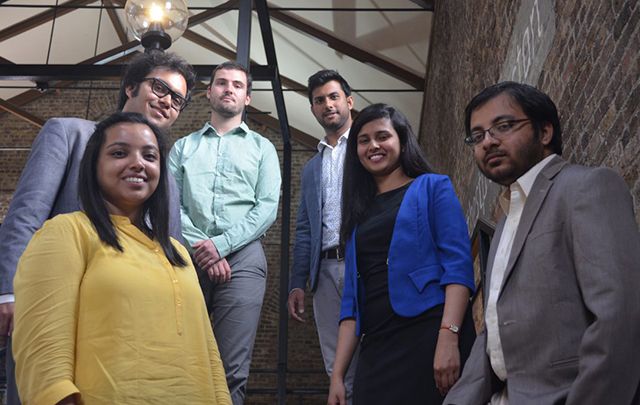Dublin startups tell their stories. Meet Shourjya Sanyal, the CEO of Think Biosolution.
Tell us about your product/service.
Think Biosolution turns cameras into medical diagnostic devices that offer low-cost and non-invasive monitoring of health. Our first product, PulseR™ allows doctors to measure heart rate, respiratory rate and heart rate variability from a video of the patient’s face. Our second product, QuasaR™, is a wearable device with a camera that measures a range of vitals and compares them to data on movement. The device suggests optimal exercise routines and durations based on that information, thus helping a user manage their chronic obesity, stress, heart and respiratory diseases.
What inspired you to start the company?
My co-founder Koushik and I met in university in India. In 2008, my grandmother was admitted to hospital in India. I was shocked by the abysmal conditions of the healthcare system. After the experience, I suggested to Koushik that we create a healthcare solution that allowed people to track their health and wellness easily, preventing the need to go to the hospital.
What market are you targeting and how big is it?
Our target market is individuals who want to manage their chronic obesity, stress, cardiac and respiratory diseases. According to the World Health Organization, chronic illness prevalence is expected to rise by 57% by the year 2020. According to the PwC analysis, the global ancillary/wellness market is valued at $1.47trillion.
What’s your business model?
For PulseR™ we work directly with doctors. QuasaR™ is still in pre-trials and after a soft launch will be licensed to sports and lifestyle apparel manufacturers.
If you already have funding, what was the funding process like?
At the beginning of 2016, we pitched to the NDRC, who immediately liked our idea. Their funding helped us test the technologies’ accuracy against standard medical equipment. It was an important step to file for a patent.
Who are your investors, how much did you raise and why does that matter?
After NDRC, we have raised another round of investment from an angel investor to build QuasaR™. We have also just opened a seed round to run trials with PulseR™ and QuasaR™.
Who are your competitors and potential partners if any?
Our main competitors are wearable fitness tracking companies such as Fitbit, Jawbone, Misfit, Garmin, Mood and Lumafit. Another set of competitors is smartphone manufacturers. What differentiates us from all of them is our unique patented image processing technology, which allows us to exploit the camera as a biospectroscopic device. That eliminates a large section of the production and development costs, as well as significantly enhances the ease of use.
What are the biggest challenges your business faces today?
Our biggest challenge is navigating the landscape of regulatory approval in terms of getting PulseR™ and QuasaR™ approved as medical devices. It’s important that they are recognised as such rather than just lifestyle gadgets, so more people have access to them to manage chronic conditions.
What do you think motivated your investors to write that check?
Our product is backed by years of research and has a great team working full time on it. We have always been keen to learn from our users and advisors.
What milestones do you plan to achieve in the next six months?
We want to build great UI and UX for PulseR™ as well as get a couple of trials for QuasaR™ with sports and lifestyle apparel manufacturers. We will also be starting the process of getting regulatory approval for PulseR™ and QuasaR™ to be classified as medical devices.
What advice can you offer companies in Dublin who are just starting out?
Now is the best time to go and talk to your customers. Build a great team before building a great product.
Tell us one (or more) things you love about Dublin as a startup community and as a city?
Dublin is a great place to start. I came to Dublin as a PhD student in UCD and got invaluable training and motivation from the faculty of the School of Physics. The Innovation Academy helped to turn the business idea into a real startup. The city is abundant with talented individuals, both on the technical and business know-how side. It’s fascinating how easy it is to go to a Meetup in Dublin and make valuable connections over a glass of Guinness! As International founders, we will always be indebted to our mentors at the NDRC and Enterprise Ireland who are always willing to give as valuable feedback and introductions.
This article appears courtesy of the Dublin Globe. For more stories from Dublin's startup community and tech scene, visit their website.




Comments